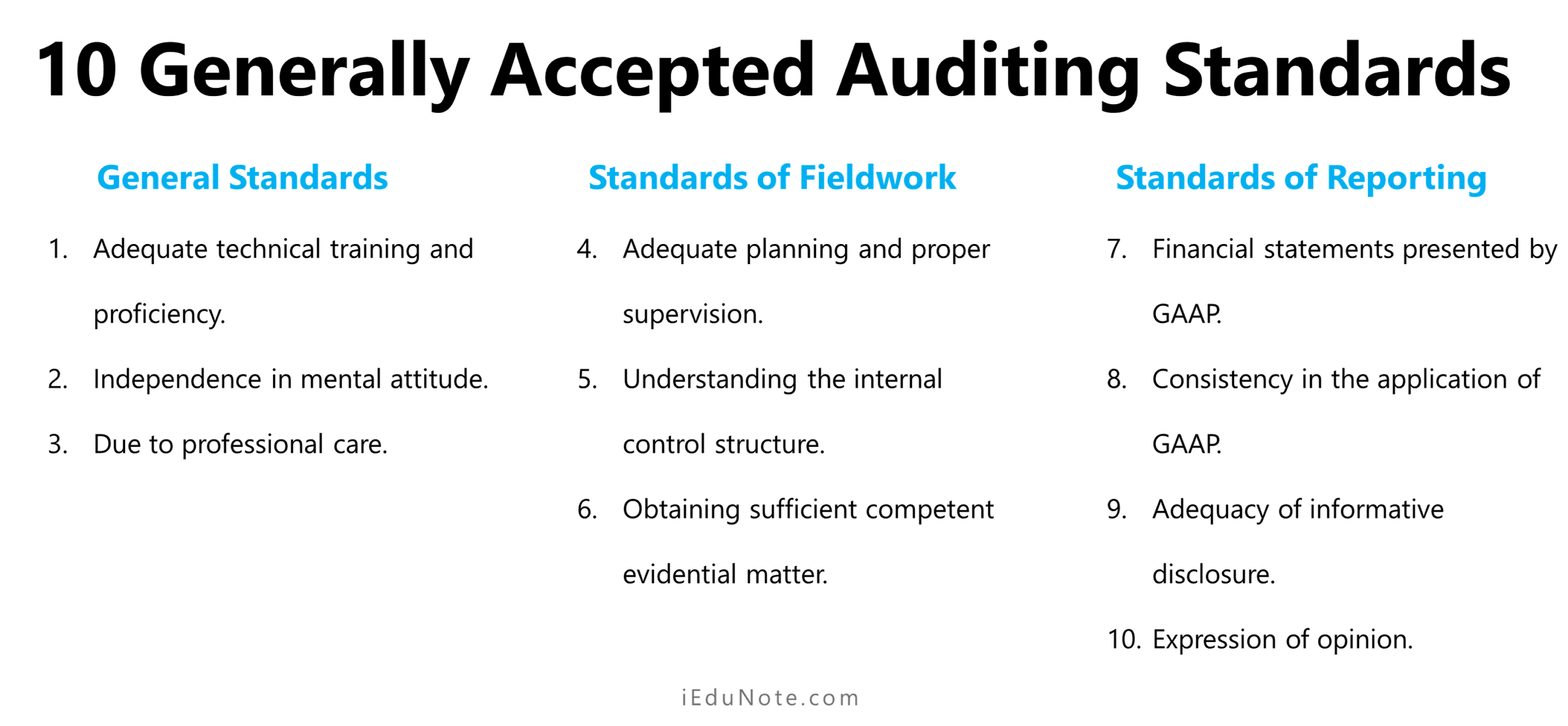Internal auditing is conceptually similar to financial auditing by public accounting firms, quality assurance, and banking compliance activities.
What is Internal Auditing?
The term internal audit has been defined as the independent appraisal of activity within an organization for the review of accounting financial and other business practices as a protective and constructive arm of management.
Professor Walter B. Meigs of America says, “Internal auditing consists of a continuous, critical review of financial and operating activities by a staff of auditors functioning as full-time salaried employees.”
As defined by The Institute of Internal Auditors (IIA), “Internal auditing is an independent, objective assurance and consulting activity designed to add value and improve an organization’s operations. It helps an organization accomplish its objectives by bringing a systematic, disciplined approach to evaluating and improving the effectiveness of risk management, control, and governance processes.
The scope of internal auditing within an organization is broad and may involve topics such as;
- an organization’s governance, risk management, and management control over:
- efficiency and effectiveness of operations (including the safeguarding of assets),
- the reliability of financial and management reporting, and
- compliance with laws and regulations.
Internal auditing may also involve conducting proactive fraud audits to identify potentially fraudulent acts, participating in fraud investigations under the direction of fraud investigation professionals, and conducting post-investigation fraud audits to identify control breakdowns and establish financial loss.
The Internal Auditing profession evolved steadily with the progress of management science after World War II.
Objectives of Internal Audit
The objectives of the internal audit can be summarized as follows:
- To verify the correctness, accuracy, and authenticity of the financial accounting and statistical records presented to the management.
- To confirm that the organization has incurred liabilities concerning its valid and legitimate activities.
- To comment on the effectiveness of the internal control system and the internal check system in force and to suggest ways and means to improve these systems.
- To facilitate the early detection and prevention of fraud.
- To examine the protection afforded to the company’s assets and their use for business purposes.
- To identify the authorities responsible for purchasing assets and other items as well as disposal of assets.
- To ensure that the standard accounting practices that the organization must follow are strictly followed.
- To undertake a special investigation for the management.
- To assist management in achieving the most efficient administration of the operation by establishing procedures by complying with the company’s operating policies.
Advantages of Internal Audit
The advantages of internal audit are as follows:
- The most significant advantage of an internal audit is that it will lead to the discovery of errors. Therefore when an external audit is done, those errors discovered during the internal audit would have been rectified.
- Since the company’s employees do the internal audit, there is no additional cost involved, which again is a big advantage for a company that is doing an internal audit.
- As an internal audit is a constant procedure where records are checked regularly, it ensures that a company’s accounting staff keeps the records up to date.
- The auditor can effectively make use of the work performed by the internal auditor by the planned coordination of his work.
- Internal audit detects the misuse of resources in time which helps to reduce unnecessary expenses.
- Internal audit checks the efficiency of staff, which helps to increase their efficiency of them.
- Internal audit increases the morale of honest staff because any staff’s performance will be evaluated at any time.
Disadvantages of Internal Audit
Side by side with the advantages, there are some disadvantages. They are given as follows:
- The shareholders or tax authorities do not accept an internal audit report. It is the external auditor report which is required to be submitted to these parties.
- Since the company’s employees, chances of the internal audit are that it may be biased, and therefore, a company cannot depend on such reports.
- Since a professional auditor does not do an internal audit, the chances of the internal auditors not detecting the errors are high.
Charges and Responsibilities of Internal Audit
An internal auditor is assigned with several charges and responsibilities effectively conduct the internal audit process.
The charges and responsibilities are as follows:
- Develop an audit plan to evaluate the institution’s financial, operational, and EDP (Electronic Data Processing) controls.
- Assess the economical and efficient use of resources.
- Determine the level of compliance with established laws, rules, policies, and procedures.
- Recommend the adoption of desirable policies or changes to existing policies.
- Follow-up on the adequacy of corrective actions.
- Conduct special projects at the request of the Board.
- Investigate cases of misappropriation, misconduct, and fraud.
- Establish and maintain a professional rapport with external auditors and management.
- Keep Audit Committee and Board fully informed on a timely basis of the activities of the Internal Auditing Department.
- Follow the Standards of the Professional Practice of Internal Auditing and Code of Ethics promulgated by the Institute of Internal Auditors.
Features for Effective Internal Auditing
To be effective, internal auditing has to satisfy some essential features.
Independence
The internal auditor should have independence in terms of organizational status and personal objectivity, which permits the proper performance of his duties.
Staffing and Training
The internal audit unit should be appropriately staffed regarding numbers, grades, qualifications, and experience regarding its responsibilities and objectives. The internal auditor should be properly trained to fulfill all his responsibilities.
Relationships
The internal auditor should seek to foster a constructive working relationship and mutual understanding with management, external auditors, other review agencies, and the audit committee where one exists.
Due Care
The internal auditor should exercise due care in fulfilling his responsibilities.
Planning, Controlling, and Recording
The internal auditor should adequately plan, control and record his work.
Evaluation of the Internal Control System
The internal auditor should identify and evaluate the organization’s internal control system as a basis for reporting on its adequacy and effectiveness.
Evidence
The internal auditor should obtain sufficient, relevant, and reliable evidence to base reasonable conclusions and recommendations.
Reporting and Follow-up
The internal auditor should ensure that findings, conclusions, and recommendations from each internal audit assignment are communicated promptly to the appropriate management level, and he should actively seek a response.
He should ensure that arrangements are made to follow up on audit recommendations to monitor what action has been taken on them.
Differences between Internal Audit and Statutory Audit
| Difference | Internal Auditor | External Auditor |
| Appointment | The management of the company appoints an internal auditor. | The shareholders of the company appoint an external auditor. |
| Legal position | Legally internal audit is not compulsory. | The external audit is compulsory by law. |
| Status of auditor | An internal auditor is an employee of the company. | An external auditor is an independent person. |
| Conduct of audit | An internal audit is a kind of continuous audit. | The external audit is generally conducted after the preparation of the final accounts. |
| Scope of work | The scope of work by the internal auditor is determined by management. | The scope of work by the external auditor is determined by law. |
| Qualification | For internal auditors, any specific qualification is not compulsory. | For external auditors, specific qualification is compulsory. |
| Submission of report | The internal auditor has not to submit any report. | The external auditor submits a report to the shareholders. |
| Fixation of remuneration | The management of the company fixes internal auditor remuneration. | The shareholders of the company fix external auditor remuneration. |
| Nature of checking | The internal auditor checks all the transactions. | External auditors may apply test checks. |
| Right of Attending the meeting | The internal auditor has no right to attend the meetings of the company’s shareholders. | The external auditor has a right to attend the meetings. |
| Duties | The internal auditor’s primary duty is to find the frauds and errors. | The external auditor does not need to give suggestions unless he is asked. |
| Removal | The management can remove the internal auditor. | The shareholders can remove external auditors. |
| Case of misconduct | The internal auditor cannot be prosecuted for professional misconduct except (C.A). | External auditors can be prosecuted. |
| Watch-dog | The internal auditor acts as a watchdog for the directors. | The external auditor acts as a watchdog for the shareholders. |

